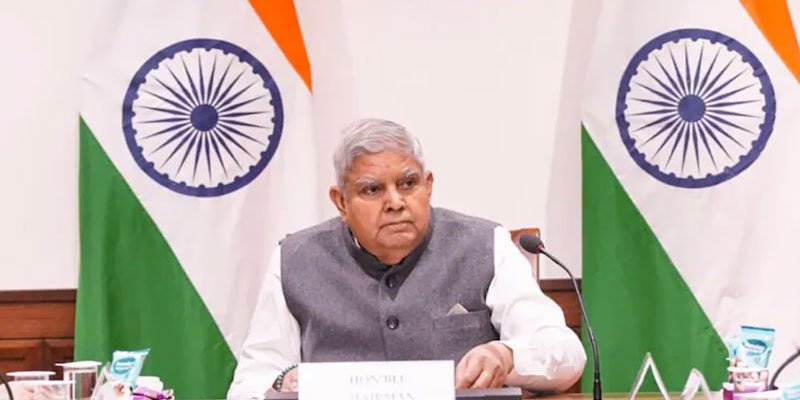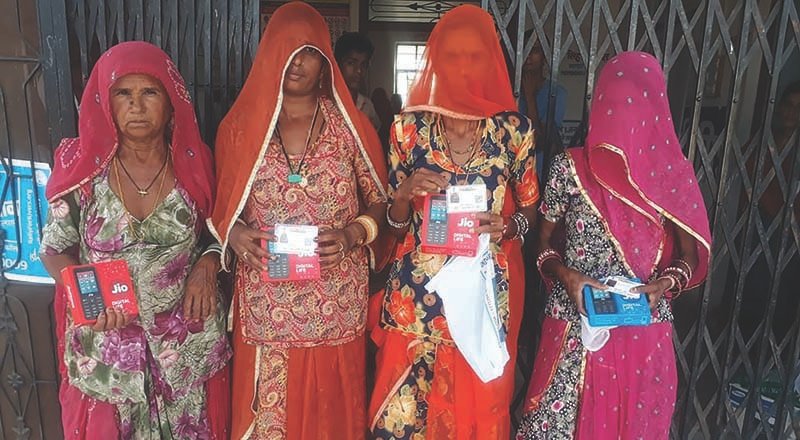
A Quiet Exit, A Loud Message: The Enigmatic Resignation of Vice President Jagdeep Dhankhar
A Political Journey Etched in Constitutional Fidelity
Jagdeep Dhankhar’s political life has spanned over three decades — a journey marked by adaptability, legal acumen, and quiet ambition. From his early days as a Member of Parliament and minister in the Chandra Shekhar government to his tenure as Governor of West Bengal and later, as the Vice President of India, Dhankhar was never far from the political spotlight. Elected as India’s 14th Vice President in August 2022, he was seen as a staunch defender of parliamentary decorum, often clashing with opposition benches over procedures and decorum in the Rajya Sabha. But on July 21, 2025, Dhankhar shocked the nation by resigning — two years ahead of completing his term — citing medical reasons. His abrupt exit has raised more questions than it has answered.
The 2022 Election: A Strong Mandate for Dhankhar
Jagdeep Dhankhar was the National Democratic Alliance's (NDA) official nominee for the Vice-Presidential election held on August 6, 2022. His candidature was pitched as a combination of rural grounding and constitutional depth. The election result reflected broad political support — Dhankhar secured 528 votes, the highest number recorded in over three decades, comfortably defeating Congress-backed Margaret Alva, who managed only 182 votes.
This overwhelming mandate not only legitimized Dhankhar’s elevation but also indicated cross-voting from the opposition benches. His support cut across party lines, reinforcing his image as a bridge-builder despite ideological divides — a trait he would be later both appreciated and criticized for.
Business as Usual—Until It Wasn’t
The Monsoon Session of Parliament opened on Monday, July 21, with customary solemnity. Vice President Dhankhar presided over the Rajya Sabha smoothly, administering oaths to newly elected and nominated members and initiating discussions on a motion concerning a High Court judge. It was routine parliamentary business — or so it seemed.
By evening, events took a dramatic turn. Dhankhar held an unscheduled meeting with President Droupadi Murmu and shortly after, dropped a bombshell — he was resigning from his post with immediate effect. Citing medical advice as the reason, he wrote in his resignation letter:
“To prioritise health care and abide by medical advice, I hereby resign as the Vice President of India, effective immediately… I extend my deepest gratitude to Your Excellency — the Hon’ble President of India… Prime Minister’s cooperation and support have been invaluable…”
It was a polite but unmissably abrupt exit — a high-ranking constitutional functionary walking away mid-session, mid-tenure, and mid-discourse.
The Timing: Coincidence or Calculated Exit?
Dhankhar’s health concerns are documented — he underwent angioplasty in March at AIIMS and had reportedly fainted during a public event in June. But nothing on July 21 indicated immediate physical distress. He carried out his duties normally and had even scheduled important meetings for the following day, including the Business Advisory Committee (BAC) meeting and a major judicial announcement.
Moreover, he was supposed to travel to Jaipur on July 23 to meet with real estate developers — a public engagement that would presumably require energy and stability.
So why the sudden departure?
The opposition quickly picked up on the inconsistencies. Congress’s Jairam Ramesh, who had met Dhankhar hours before the resignation, expressed shock and suspicion. He posted:
“How in a truly unprecedented move, Shri Jagdeep Dhankhar has resigned... While always lauding post-2014 India, he spoke fearlessly for the welfare of farmers, forcefully against what he called ‘ahankar’ in public life, and strongly on judicial accountability... His resignation speaks highly of him. It also speaks poorly of those who had got him elected…”
Ramesh’s remarks hint at a deeper friction — between Dhankhar’s personal convictions and a government increasingly viewed as rigid and intolerant of dissent.
Tensions Beneath the Surface: Was There a Power Play?
The Vice President of India serves not just as a ceremonial figure but as the constitutional chairperson of the Rajya Sabha — a position that places them at the center of legislative friction. Dhankhar’s tenure had not been free of controversy. He was known for his assertiveness in the Rajya Sabha, often accused by the opposition of partisanship. In fact, in December 2024, an impeachment motion — though unsuccessful — was filed against him by opposition parties.
Political analysts are now speculating whether his acceptance of the motion against Justice Varma, widely seen as a sensitive move for the judiciary and government alike, might have been a tipping point. Was his resignation a result of quiet pressure? A disagreement with party lines? Or was it a pre-emptive move to exit with dignity before tensions escalated further?
The absence of a clear explanation from the government fuels theories that his departure may be more political than personal.
Number Games and the Road Ahead
With Dhankhar’s departure, the Vice President’s office lies vacant. However, the NDA remains well-positioned to secure the position once more. The ruling alliance currently holds 293 seats in the Lok Sabha and 133 in the Rajya Sabha, totaling 426 votes — comfortably above the halfway mark needed to elect a Vice President. Given the historical trend of cross-voting in Dhankhar’s own 2022 victory, the NDA’s prospects remain strong.
The Election Commission is expected to notify the schedule for the Vice-Presidential election soon. Until then, Deputy Chairman Harivansh Narayan Singh will handle proceedings in the Rajya Sabha. Behind closed doors, the selection of the next candidate is likely underway, with the opposition also mulling a strategic challenger under the INDIA bloc.
A Resignation That Speaks Volumes
Jagdeep Dhankhar’s resignation is more than just a personal decision — it is a political moment loaded with implications. If health were the sole reason, the lack of prior communication, his active engagement hours before, and the ongoing BAC meetings do not align with such urgency.
Whether nudged out due to principled disagreements, internal party dynamics, or an evolving sense of constitutional disquiet, Dhankhar leaves behind a message — that even at the heart of power, integrity and conscience can still cause disruption.
As the dust settles, the focus will shift to who replaces him — not just as Vice President, but as the arbiter of parliamentary equilibrium. And perhaps, more importantly, whether the next person in that chair will uphold Dhankhar’s quiet resistance or comply unquestioningly with the winds of power.
Eyes on the Successor, Echoes of the Exit
As India awaits the announcement of the Vice-Presidential election, the real political drama is unfolding in the backdrop. Who the NDA selects — and how the opposition counters — will shape not just the legislative landscape, but also reflect on the values each bloc brings to the institution of Parliament.
Jagdeep Dhankhar’s resignation may be done, but its impact has only just begun.







